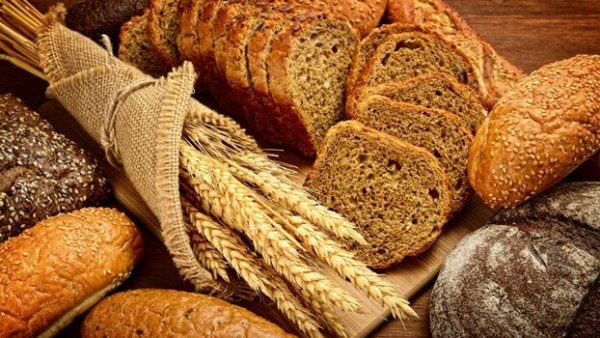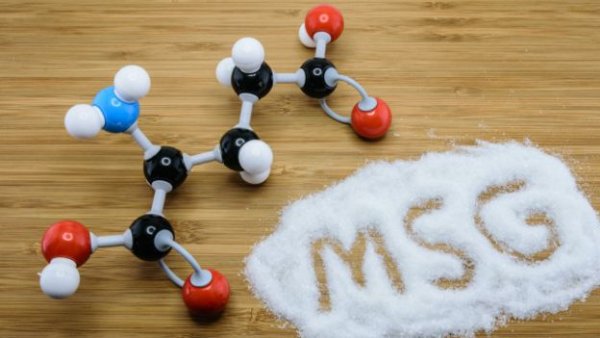5 of the Worst Foods for Your Brain

Having a healthy brain depends on many different factors. The most important two are exercise and oxygenation. But what we eat plays a very significant role as well. They either provide or take away substances that directly influence our brain function.
Natural products make up a healthy diet. Above all, a healthy diet seeks balance. Nothing is good in excess. We should avoid overly processed foods. We should especially watch out for foods with large amounts of sugar, salt, or fat.
Our mood, learning abilities, and memory are affected by the food we consume. They contain substances that can potentially affect our nervous system and brain. That’s why it is so important to watch what you eat.
Some of these harmful ingredients are in most processed food but they go unnoticed. We only see them if we read the ingredient list carefully, but their names can be long and hard to understand.
Next, we’ll list five of the worst foods for your brain if you want to keep it healthy.
“Our lives are not in the hands of the gods, but in the hands of our cooks.”
-Lin Yutang-
1. Gluten: one of the worst foods for your brain
Gluten is a group of proteins found in many grains. Although they’re not exactly the same, we use this generic name because they have many similarities. Gluten is in varieties of wheat, barley, rye, and other similar foods.
These proteins adhere to the small intestine and cause metabolic, digestive, and immune disorders. Some people are more sensitive to gluten. Others are not very sensitive, but it still affects their bodies, even if they don’t feel it. Gluten is one of the worst foods for your brain because it affects the nervous system in general.

2. Artificial Sweeteners
Sweeteners are substances that replace sugar in foods. There are some natural ones, but most of them are artificial. We know that they affect brain health. In fact, many call them “brain poison” because they cause neuronal agitation.
Aspartame and saccharine, two artificial sweeteners, have been associated with certain nervous system disorders. Among them are depression, anxiety, recurring migraines, and speech impediments. A wide variety of industrial foods contain these sweeteners. In general, foods labeled “light” or “low in sugar” contain these artificial sweeteners.
3. Monosodium Glutamate (MSG): one of the worst foods for your brain
MSG is in nearly all packaged and canned foods. MSG is an extremely concentrated salt. The food industry uses it as a preservative and also to improve the taste and smell of foods. Studies show that consuming MSG stimulates the production of dopamine in the brain.
Dopamine generates a momentary feeling of well-being. However, monosodium glutamate also has high levels of so-called “excitotoxins”. There is strong evidence that this substance affect brain health. Researchers link serious illnesses such as Parkinson’s, Alzheimer’s, dementia, and chronic fatigue to MSG consumption.

4. Refined Sugar
Scientists consider sugar one of the three “white poisons”, along with salt and refined flour. Currently, it’s one of the most commonly used ingredients in all kinds of food. Prolonged consumption of sugar can cause problems and put your brain at risk.
Refined sugar keeps a protein called BDNF from working properly. This protein carries out important functions in the nervous system. Two of those functions are protecting your memory and facilitating connections between neurons. Studies have proven that people with schizophrenia or depression get worse when they regularly eat sugar.
5. Fluoride: one of the worst foods for your brain
Fluoride is a mineral that some governments add to tap water for purity and public health reasons. Although we can’t taste it, it’s there when the water comes out of the tap.
Critics have severely questioned the use of fluoride in water. Scientists suspect that fluoride could be related to poor intellectual performance and changes in some cognitive functions.

The Fluoride Action Network (FAN) presented evidence from 34 studies that seem to corroborate this claim. Organizations like UNICEF take a stance against fluoride in water. We know that bottled water has an even higher concentration of fluoride.
The best thing to do to keep your brain healthy is to eat fresh foods. Packaged and processed foods are some of the worst foods for your brain. Not only do they have very little nutritional value, they also make us sick. It’s better to avoid them altogether.
This text is provided for informational purposes only and does not replace consultation with a professional. If in doubt, consult your specialist.








